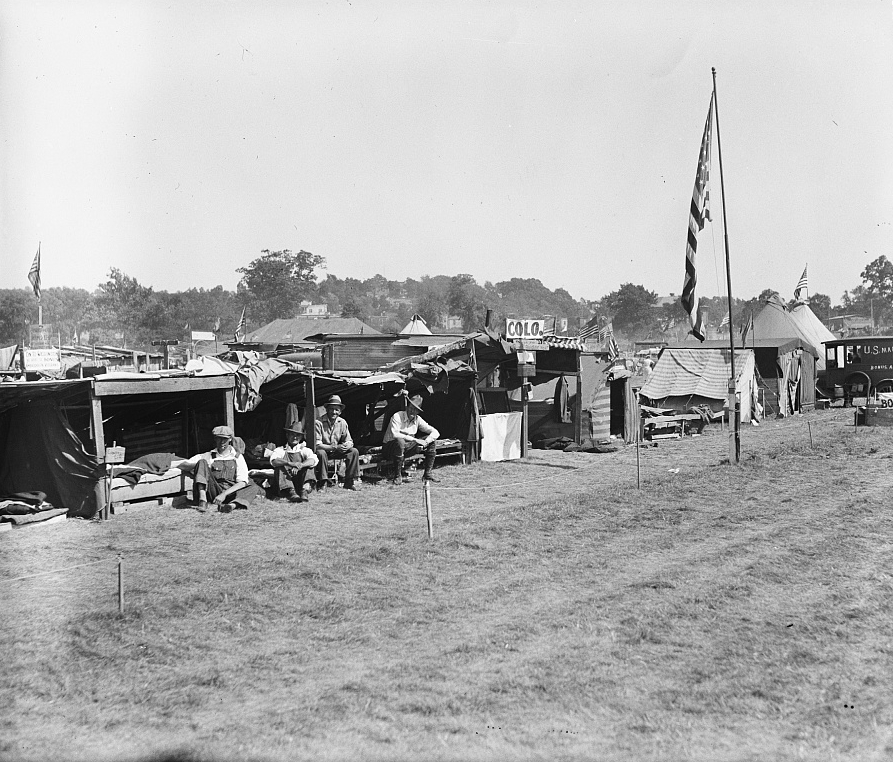WWI vets got the short end of the stick in the Great Depression. This was their answer.
Published: 16 September 2023
By Brandon Weber
via the Upworthy web site

Bonus_Army_camp
Bonus Army camp in Anacostia, Washington, DC.
Veterans risk their lives in the name of their country. But they often end up vulnerable when they return home.
On some occasions throughout our history, treatment of veterans has gotten so bad that it has led to major political change.
That’s what happened on July 28, 1932, in Washington, D.C., when a confrontation between homeless vets and U.S. military personnel so outraged the public that it swayed a presidential election and had major repercussions.
President Herbert Hoover, a Republican, was faced with an unsightly controversy: Thousands of destitute veterans had been camped out in the capital, forming one of several “Hooverville” encampments around the country. Hoover ordered the nation’s military to march on the veterans, torch their makeshift homes, and run them out of town.
His opponent in the coming election, Democrat Franklin Delano Roosevelt, knew the move would incense the public. Upon hearing the news, he is said to have remarked, “Well, this will elect me.”
The clash was one of the darkest chapters in the history of American veterans and still resonates today.
The unrest began when veterans demanded their lost wages be paid sooner than Congress wanted to.
When veterans of World War I returned home in the early 1920s, they petitioned Congress to offer some sort of compensation for lost wages; military pay was far below what they could have earned at home in the factories. Congress passed a law to compensate them, but the certificates issued to the veterans were not payable until 1945.
Meanwhile, in 1932, the Great Depression was in full swing, and those veterans became part of the destitute masses who had no money, no food, no jobs, and, in some cases, no homes.
Veterans eventually took to the streets.
Unemployment nationwide reached nearly 24% that year, so prospects were dim for everyone.
Feeling like they’d been rather chewed up and spit out by their country after doing what they felt was their duty, 15,000 to 20,000 veterans made their way to Washington to set up camp and make their case. They were known as the Bonus Expeditionary Force, later shortened to the Bonus Army.
They occupied abandoned structures along Pennsylvania Avenue between the Capitol and the White House and set up camp in nearby parks and the Anacostia Flats, a swampland east of the Capitol that had been converted into a park in the early 1900s. Those areas swam with tent cities and even some shacks erected from nearby scrap piles. Such encampments were known as “shantytowns” or “Hoovervilles” after the president who would not meet with them, talk to them, nor hear their stories.
These makeshift homes were filled with veterans from The Great War, both black and white, along with their families.
Read the entire article on the Upworthy web site.
External Web Site Notice: This page contains information directly presented from an external source. The terms and conditions of this page may not be the same as those of this website. Click here to read the full disclaimer notice for external web sites. Thank you.



